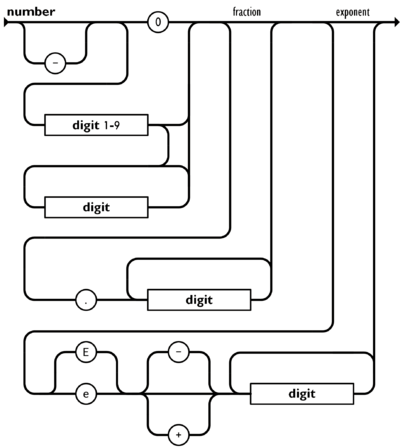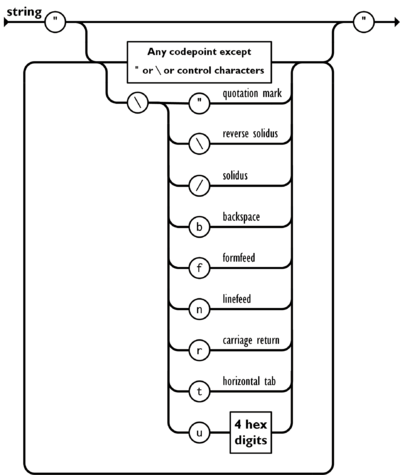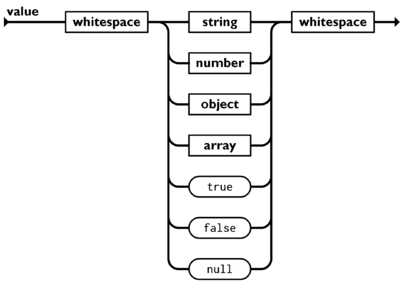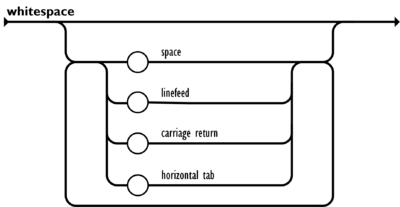JSON Team-Name-Not-Found
Introduction to JSON[edit]
JSON stands for JavaScript Object Notation. It is a lightweight data-interchange format that is easy for humans to read and write and is easy for machines to parse and generate. It is based on a subset of the JavaScript Programming Language Standard ECMA-262 3rd Edition - December 1999. It is a text format that is completely independent of a specific programming language (help) that still uses conventions that are familiar to programmers that have worked with C, Java, Python, and many other similar coding languages. This similarity allows JSON to be a language that is data-interchangeable with many other languages.
JSON Structure[edit]
JSON is built on two structures that are considered universal data structures: A collection of name/value pairs (object, record, struct, dictionary, hash table, keyed list, or associative array) An ordered list of values (array, vector, list, or sequence)
JSON Types/Forms[edit]
J has 6 basic data types:
-Object
Has a set of “keys” (strings) that matches to a value (similar to a dictionary in swift)
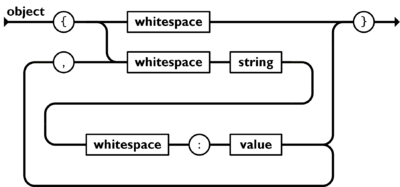
JSON examples:[edit]
Number Example: 1463
String Example: “characters”
Boolean/Value example: “true”
Array example: [ “This”, “is”, “an”, “array”]
Object example: {object: 1}
Whitespace/null example : null
JSON file example :
{ //object “firstName” : “Garrett”, //string “lastName” : “Fundis”, “isAlive” : true, //boolean “yearOfBirth” : 2004, //number “friends” : [ //array { “firstName” : “William”, “lastName” : “Jackson”, }, ], “spouse” : null, }
Sources[edit]
https://www.valuebound.com/resources/blog/overview-of-json-api https://www.json.org/json-en.html

